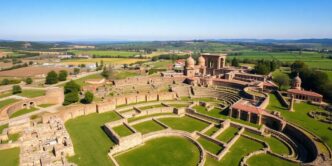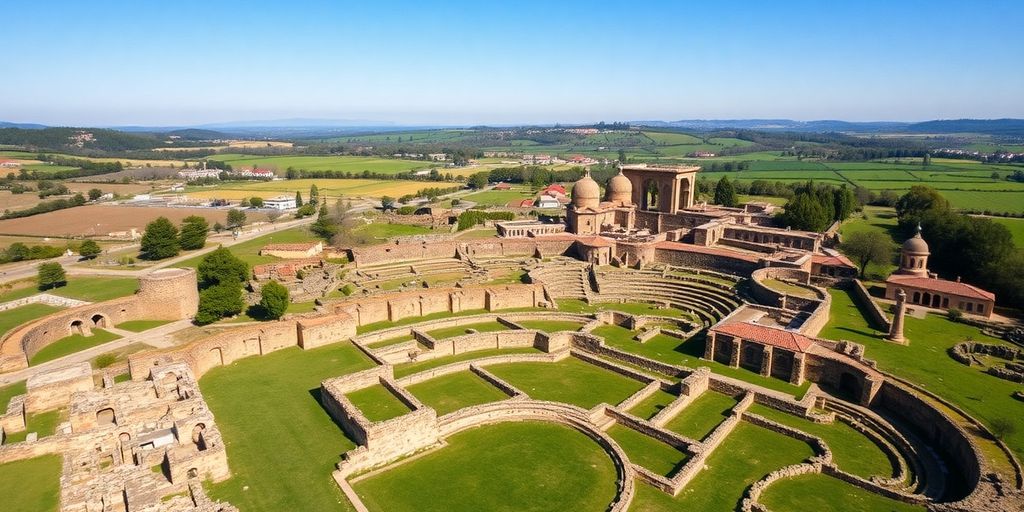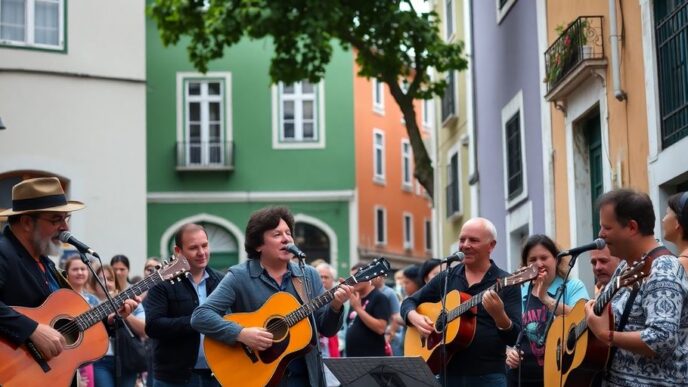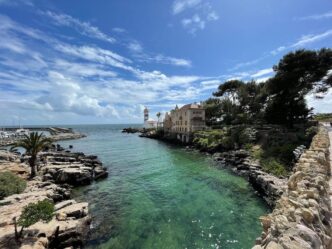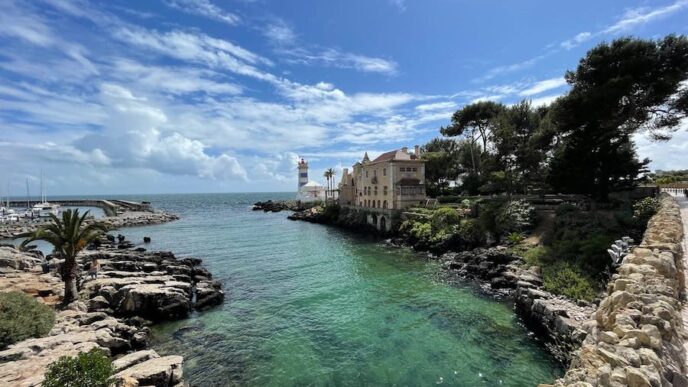In a remarkable archaeological find, researchers have uncovered the ruins of a Roman thermal complex in Portugal’s Alentejo region. This discovery includes the remains of pools and intricately designed mosaics, alongside a human skeleton, shedding light on the Roman presence in the Iberian Peninsula.
Discovery Details
The excavation took place in the municipality of Alter do Chão, where archaeologists revealed the remains of a thermal complex that dates back to the Roman era. The site includes:
- Roman Pools: The ruins indicate the presence of pools that likely served as outdoor swimming areas, specifically designed for cold water.
- Mosaic Walkways: Surrounding the pools, the walkways are embellished with beautiful mosaics, showcasing the artistic skills of the time.
In close proximity to the pool ruins, archaeologists suspect the existence of a necropolis, as they discovered three marble tombstones, one of which contained a human skeleton. Jorge Antonio, the lead archaeologist, noted that the skeleton is in good condition and will undergo detailed examination in the coming weeks.
Historical Context
This discovery is not an isolated event. Two years prior, archaeologists unearthed 13 Roman graves near Abelterium, further emphasizing the rich Roman history in this region of Portugal. The recent excavations, completed in September, were the result of collaboration among an international team of scientists, including experts from Portugal, Spain, and Brazil.
Broader Archaeological Significance
The findings in Alter do Chão contribute significantly to the understanding of Roman influence in modern-day Portugal. This region has a longstanding tradition of archaeological research, revealing insights into the daily lives and practices of the Romans who inhabited the Iberian Peninsula.
In a related discovery, in September, archaeologists in Porto uncovered the ruins of a medieval bridge dating back to the 13th century while constructing a new metro line. This bridge was assessed to be in “very good” condition, highlighting the ongoing importance of archaeological work in uncovering Portugal’s rich historical tapestry.
Conclusion
The unearthing of the Roman thermal complex in Alentejo not only enriches the historical narrative of the region but also underscores the importance of continued archaeological efforts. As researchers delve deeper into the findings, they hope to uncover more about the lives of those who once frequented these thermal baths, providing a glimpse into the past that continues to shape Portugal’s cultural heritage.

